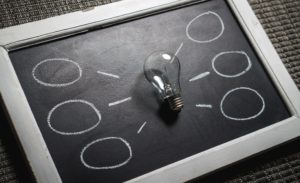



Learning disabilities often means having academic difficulties. They are often very specific and that interfere with learning/schooling. It can be many things. Most of the time, it will interfere with reading, writing and/or math. Parents or professors may notice that a children has a hard time learning language, despite efforts, or that he makes many specific errors while reading.
Learning disabilities are neurologically-based processing problems. These processing problems can interfere with learning basic skills such as reading, writing and/or math. They can also interfere with higher level skills such as organisation, time planning, abstract reasoning, long or short term memory and attention. Definition from Learning Disabilities Association of America.
Learning Disabilities are typically often in Neuropsychology - to get a global picture of the individual`s thinking style. The evaluation includes a clinical interview with the parents (and sometimes with the teacher), a neuropsychological evaluation of variable length but including assessment of Intelligence, Memory, Attention, Language, Academic skills.
A throughout evaluation is very important to identify precisely what is going on. Because children and young adults may still be studying for quite a few years.
Although evaluations are not "one size fits all", this is what can generally be expected. This process lasts a few weeks / months, as I get to know you better.
- Clinical interview. 1 to 2 hours. Arrive early to fill out the consent forms. Also, be prepared to fill out questionnaires after our meeting – children, parents and teachers will get questionnaires to fill and return.
- Neuropsychological Evaluation. 4 - 7 hours, usually over 2-3 sessions. The neuropsychological evaluation is usually done with the patient alone. The length varies and often depends on the complexity. Some work faster than others. Some need more time and support to learn they are capable persons. Some need more detailed evaluations. When working with younger clients, a throughout evaluation is very important to identify precisely what is going on. Because children and young adults may be studying for many more years, a full assessment is essential, with tests of attention, memory, language, reasoning, etc. Academic achievement also has to be evaluated. I will need a copy of the report cards and I like to send questionnaires to the teacher. Finally, it is important to get an idea of the person’s functioning in many areas (home, school, work, hobbies, etc).
- Scoring the results and writing a report. This takes around 5 hours but can take longer in complex cases or if the report includes many "teaching sections" and many "recommended strategies". To write a report, I look at all the questionnaires, all the tests, all the symptoms you have reported and I try to find patterns, explanations and solutions. The report usually includes all the results and recommendations for home and for school.
- Feedback session. 1 hour. I give you the diagnosis and some recommendations. We discuss about it. May take more than one session.
- Follow up coaching / strategies / interventions. 1 hour sessions, spaced by 1-2 weeks.
- NOTE : I recommend at least one follow up session, one month after the diagnosis. To see how its been integrated at home and in school. Its sometimes hard to make a real change at home and in school : most parents and students need help, even after the diagnosis and recommendation.
- If needed, some medication has to be prescribed and controlled by your family doctor. He is the one who knows best about your physical health. Take an appointment and bring a copy of your report with you.
